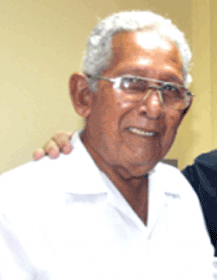As you may know, our dear readers of this column, on Dec. 8, 2008, at the headquarters of the OAS, the representatives of Belize and Guatemala signed a Special Agreement known as the compromis to take Guatemala’s claim, unfounded claim, finally legal claim, to the International Court of Justice. On 8th of May 2019, the process of a referendum took place for Belizeans to decide whether the case should be taken to the ICJ or not; 53,388 voted in favor, 43,029 voted against, meanwhile 52,083 cared less, or was it a silent protest? We will never know. Nevertheless, the yes votes complied with what was expected by the government of Belize, the United States of America, the United Kingdom and the European Union.
The words of hope for the believers is that Belize has a strong case and the 1859 treaty is an eaten bread. But my understanding is that the compromis had made the 1859 treaty void. The vision of this pen is one of so many opinions which I’ll share in the open campus. As Colonel Arthur pointed out on his return to England in 1822: “It is certainly of the last importance that some negotiations should be entered into, so that our limits may be confined to the extent we have occupied during the last sixteen years — if this is not done now we shall hereafter be in endless litigation with the Independent Government.” (Narda Dobson). The British had expanded beyond the Anglo-Spanish Convention of 1783-1786, now it is payday. It is my belief that the judges at the International Court of Justice will base their decision on three things: Historical facts, International Laws and Equity. Everyone has the right to their own opinion(s), but no one knows as a fact how and what will be the final outcome of the Belize/Guatemala case.
The Battle of St. George’s Caye on the 10th day of September 1798, is a very important date and event for the descendants of the British settlers and their supporters. That is what makes up their history and culture which gives them an identity. The neighboring countries acknowledge Yucatan’s Governor Arturo O’Neal 1798 defeat because of his retreat, even though they also know the importance of the 1802 Treaty of Amiens. The Belize of today did not exist in 1798, nor was it inhabited by the British settlers and their supporters except for St. George’s Caye and the Town at the mouth of the Vallis River, known these days as Belize City. The space, 6,688 square kilometers, that included the Anglo-Spanish Convention of 1783-86, was to take out logwood. With that said, my question would be: what did the British settlers and their supporters conquer in 1798? In 1787, one year after the Anglo-Spanish convention of 1786, the official owner, who was the Spanish Crown, established the border between Yucatan and Guatemala. Can anyone change that decision? Or, may I say — does anyone have the authority to change history? In 1798, there was no Corozal, Orange Walk, Stann Creek, Cayo, Toledo, Belize District and surrounding villages. In 1821, Mexico and Guatemala got their independence. In 1822, the United States recognized Mexico’s independence. In 1826, the Central American government sent Marcial Zebadúa to London as an agent to negotiate a treaty with the British. In 1835, Colonel Galindo, special agent of the Central American government, wrote to Mr. Forsyth, Secretary of State of the United States of America, stating that: “The Rio Hondo forms the border between Guatemala and Yucatan.” On said year, 1835, he arrived in London with the authority to act on behalf of Francisco Morazán, representing Guatemala to speak on the matter of the British Settlement at Honduras with Lord Palmerston, British Foreign Secretary. On the 5th of April of said year, the British requested from Spain a title of sovereignty of what was supposed to have been the Belize of today.
However, there are many questions which are unanswered. For the best interest of the Belizean people, the corresponding department should speak of the true history of how Belize came to be and stop confusing the minds of the youths of this country who will be put to shame when serious questions on the matter are asked and they won’t have any basis on which to respond. In 1836, Spain recognized Mexico’s independence, including the Anglo-Spanish Convention of 1786, which means to say, including down to the Sibun River. In 1844, the United States recognized Guatemala’s independence.
[email protected]
May 31, 2019
Finca Solana
Corozal Town

